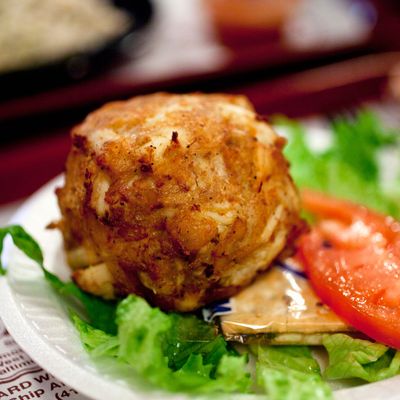
A new study by the nonprofit Oceana finds that there is some serious crab deception going on in America’s blue-crab capitals, Maryland and Washington, D.C. The group tested 90 crab cakes from 86 different restaurants (both high-end and family-friendly) and discovered that 38 percent of the cakes purporting to contain local blue crab — Maryland’s official crustacean and a point of local pride — were mislabeled, and instead contained species of imported crab. Another finding, which is perhaps unsurprising: Mislabeling was much more rampant in cities than in smaller shore towns, approaching half of all crab cakes in both Baltimore (46 percent) and Annapolis (47 percent). Given Maryland’s obsession with blue crab, this is like 46 percent of bagels in New York really being, like, sourdough rolls.
The problem isn’t just mere deception: The mislabeled crab cakes often contained crabs imported from Mexico’s Pacific coast and Indo-Pacific region with less traceable origins. A lot of these crabs, Oceana notes, “are listed as species to ‘avoid’ on seafood guides because of unsustainable fishing practices.” Nonetheless, they meet much of the demand in Maryland and elsewhere in the U.S. because over-fishing and habitat degradation in the Chesapeake Bay have cut into blue-crab populations. Mislabeling is rampant in seafood, as Oceana has demonstrated with both shrimp and imported fish before, and it’s likely there are more mislabeling studies to come.
[Oceana]





